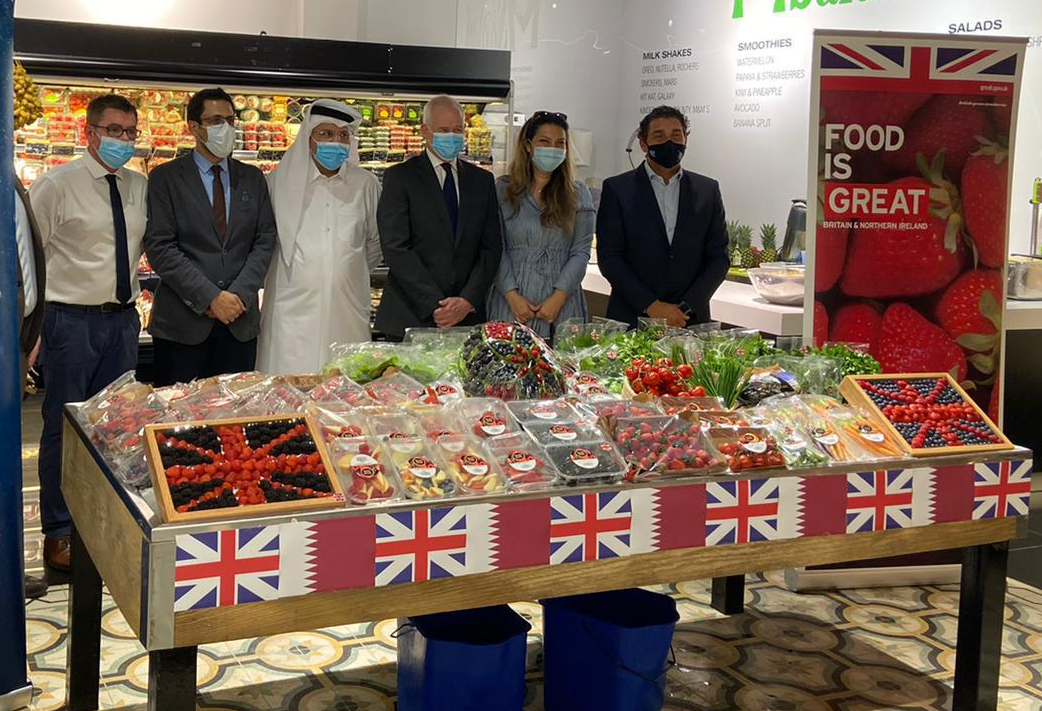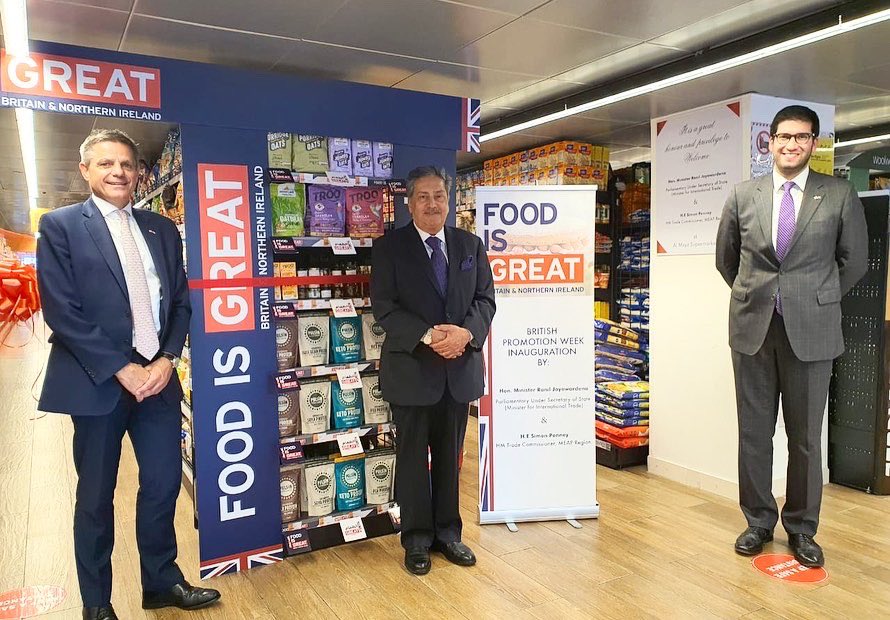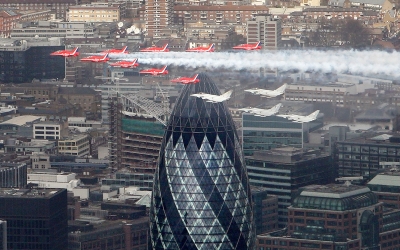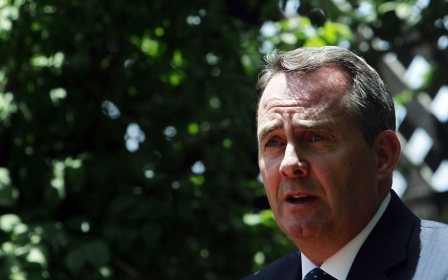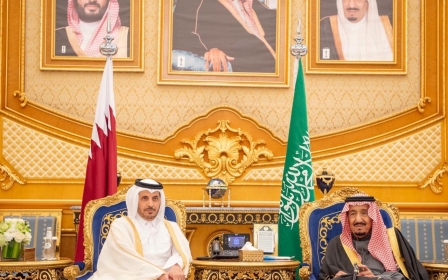One month until ‘Brexit’: Is the UK looking to seal a Gulf free trade deal?
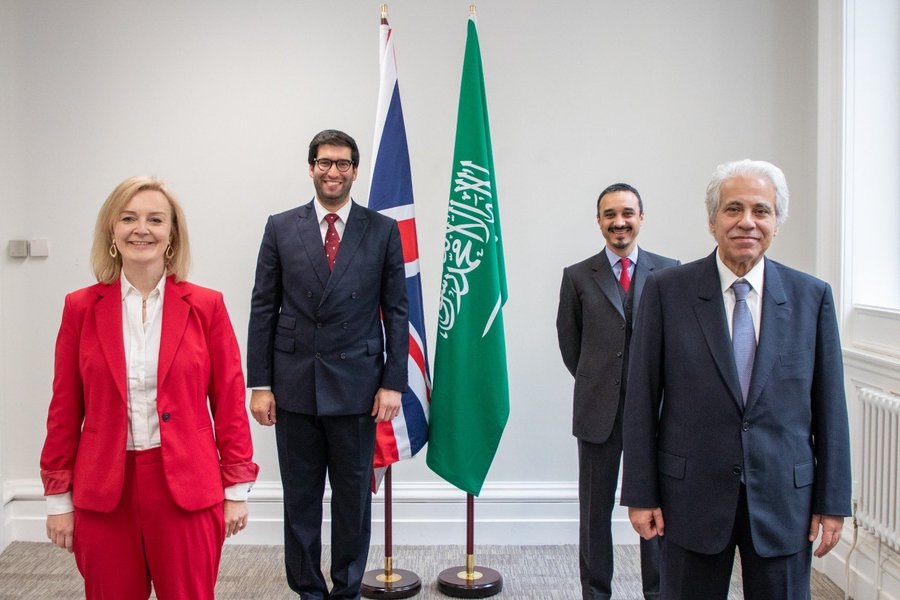
The British government has been scouting the world to drum up business with the clock ticking down as it prepares to finally exit the European Union at the end of the year.
And while discussions over the UK’s critical future trade relationship with its erstwhile EU trading partners still appear deadlocked, London has its eyes set on securing a free trade agreement (FTA) with the Gulf Cooperation Council (GCC) countries.
Inking an FTA would be a big headline grabber for Downing Street, with bilateral trade worth $60.1bn in 2019, more than with India and Canada combined.
'A UK-GCC FTA is going to be tough to achieve, especially given the fact that other, bigger markets have also found it hard to do so'
- Guy Burton, Vesalius College in Brussels
Some analysts suggest that the British government could attempt to package its lucrative arms dealings with the Gulf states into an agreement, even with weapons sales to Saudi Arabia the subject of a continuing legal battle focused on allegations of war crimes carried out by Saudi-led forces in Yemen.
But is an FTA likely to actually materialise, given the GCC’s current internal divisions – over Qatar – and its weak track record in actually ratifying such agreements? Furthermore, what benefits are there for both parties?
New MEE newsletter: Jerusalem Dispatch
Sign up to get the latest insights and analysis on Israel-Palestine, alongside Turkey Unpacked and other MEE newsletters
There has been much to-ing and fro-ing between London and the Middle East following Brexit, with discussions ongoing with the GCC since 2017.
London even eyed up potential financial opportunities in Lebanon, with the Bank of England sending an official on a working holiday in early 2019 to Beirut. Given what has happened since in the country - the financial crisis, currency depreciation and the devastating port blast - few opportunities are likely to ever arise).
The Gulf would be the main prize, accounting for $50.8bn of the UK’s $57.2bn in trade with the Middle East.
In early November, a joint statement was issued on trade and investment between the UK and the GCC agreeing to undertake a Joint Trade and Investment Review.
“In a sense FTA talks have broken cover now,” said Michael Patchett-Joyce, a lawyer at 36 Commercial in London.
The joint statement did not provide any timeline or specifics on when an FTA could be inked, but it played up the potential benefits: “With GCC member states delivering their economic diversification and vision plans, now is the moment for the UK and the GCC to build on their historic and deep friendship to develop even closer economic ties, boosting our trade and investment further still.”
Trade with the UK has more than doubled over the past decade, from $19.1bn in 2010 to over $50bn, with British firms being active in GCC markets, from finance to retail franchises, in education, healthcare, hydrocarbons and the arms trade. According to government figures, machinery, mechanical appliances and aerospace products dominate exports to the GCC.
Conversely, the GCC has been a major investor in the UK - particularly Qatar, Kuwait, the UAE and Saudi Arabia - from real estate to retail outlets and football clubs.
The GCC rift
Talk of an FTA was underway prior to the June 2017 blockade of Qatar by the UAE and Saudi Arabia, which, like the UK-EU talks, has not yet been resolved.
“The blockade threw a wrench in the works,” said Courtney Freer, assistant professorial research fellow at the Middle East Centre at the London School of Economics.
The FTA within the GCC, inked in 2014, has also been undermined by the spat with Qatar, with no trade occurring between Qatar and the main backers of the blockade, Saudi Arabia, the UAE and Bahrain.
Following the inter-GCC FTA, bilateral trade agreements with other countries were annulled, with all future agreements to occur under a GCC mandate.
While the GCC is still largely operating as a unified bloc, it is not clear if high-level talks among all Gulf states to hammer out an FTA are actually possible. “If there was a meeting in Riyadh, could the Qataris even go?” questioned Freer.
The standoff with Qatar scuppered the chances of China and the GCC inking an FTA, which had restarted in 2016.
“It was not too far from being delivered, but since the Qatar crisis there’s been no movement since,” said Guy Burton, adjunct professor at Vesalius College in Brussels and a former assistant professor at the Mohammed Bin Rashid School of Government in Dubai.
“A UK-GCC FTA is going to be tough to achieve, especially given the fact that other, bigger markets have also found it hard to do so.”
The GCC has a lengthy list of FTAs that have failed to materialise, notably with the EU (24 rounds of negotiations since 2002), China (since 2006), New Zealand (negotiations concluded in 2009 but still to be ratified), Australia (since 2009) and the United States (since 2007).
Out of the 12 GCC FTAs announced with countries and blocs, dating back to 2005, only two have been ratified, with Singapore and the European Free Trade Area (EFTA – Switzerland, Norway, Iceland and Lichtenstein).
Human rights and other obstacles
A sticking point over the EU-GCC FTA was the EU wanting a clause on human rights and political development. While the GCC reportedly had no issue with including it, according to a briefing note, “the real problem is more to do with the EU holding the right to suspend an agreement if it feels there is a violation on the GCC side on human rights.”
“The clause looks as if the EU could pull the plug on the FTA if they felt there was an infringement. That is giving a lot of power to the EU, and does seem to have a Damocles sword element about it,” said Patchett-Joyce.
There is no public information on whether human rights would be included in a UK FTA with the Gulf.
'Human rights is not going to be off the agenda, but it is not going to be something necessarily dealt with explicitly in an FTA. You don’t trade human rights'
- Michael Patchett-Joyce, lawyer at 36 Commercial
“It is up to the UK what it does. Human rights is not going to be off the agenda, but it is not going to be something necessarily dealt with explicitly in an FTA. You don’t trade human rights, so it doesn’t fit in that context, but could be dealt with in other ways,” said Patchett-Joyce.
One advantage the UK has in its discussions compared to the EU’s attempts is that it will not need the approval of multiple parties.
“The same issues will apply for any agreement with the UK, although to overcome that, it only concerns one country rather than 27 [EU member states],” said Ian Worth, director of customs at British accountancy firm Crowe.
“I can’t imagine an agreement being reached without addressing the question of human rights. Part and parcel of an FTA is a responsibility to conduct trade in a continuing ethical manner. This could be a stumbling block,” he said.
Oil subsidies
Another stumbling block for the EU, as well as China, was over petroleum tariffs and Gulf subsidies for the sector, with the primary exports from the GCC being oil, natural gas, and petrochemicals.
If the UK removed tariffs on hydrocarbons there would be negligible benefits, with refined oil and gas to be taxed at just four percent in 2021. Tax on crude oil is zero, and on petrochemicals (such as for manufacturing plastics) six percent.
'Under an FTA the tariffs could be eliminated, but it is unlikely any savings will be passed onto the consumer'
- Ian Worth, Crowe
accountancy
“Under an FTA the tariffs could be eliminated, but it is unlikely any savings will be passed onto the consumer,” said Worth.
The UK government would also not accrue more tax revenue if import tariffs were slashed, with the initial import tax loss recouped at the petrol pump, as overall taxation on hydrocarbons would be unlikely to reduce.
Removing tariffs on carbon-based products in an FTA with the Gulf could also face a backlash from civil society. “Any new FTA has to tip its hat to environmental concerns, and the environmental lobby is growing in strength,” said Worth.
Further down the road, the UK’s demand for oil, particularly for transportation – the biggest user – may also go down as the country has pledged to move towards electrified vehicles to meet zero carbon emissions targets by 2050. Earlier this month, the government announced that a sales ban on new petrol and diesel cars would be brought forward to 2030.
Currently, Norway is the UK’s biggest supplier of oil, with the GCC accounting for 13.6 percent of imports. The UK is more reliant on the Gulf, specifically Qatar, for natural gas, with 39 percent of UK gas imports liquefied natural gas (LNG), of which half is Qatari.
“The flip side of the coin is that if the UK were to agree to eliminate tariffs on petroleum products from the GCC to UK, what does the UK get in return?” said Worth.
“It is important any FTA should cover goods, that is the easy bit, but services are more difficult, including legal and financial services, and a whole list of hot topics – healthcare, life sciences, education, and renewable energy.”
The trade balance with the two biggest trading partners, Saudi Arabia and the UAE, is in favour of the UK, with the UK exporting £7.6bn to the UAE, while importing £3bn (of which $1bn is oil and gas), and exporting £3.6bn to Saudi Arabia, and importing £3.3bn (of which £2.6bn is oil and gas).
'It is important any FTA should cover goods, that is the easy bit, but services are more difficult, including legal and financial services, and a whole list of hot topics'
- Michael Patchett-Joyce, lawyer at 36 Commercial
For the UK, greater access for the services sectors – which accounts for around a third of UK exports – would be an advantage, potentially more so than for trade, with imports typically taxed at five percent going into the GCC (but at zero if going into one of the dozens of free trade zones in the region).
“It is important any FTA should cover goods, that is the easy bit, but services are more difficult, including legal and financial services, and a whole list of hot topics – healthcare, life sciences, education, and renewable energy,” said Patchett-Joyce.
With services of such importance, it has raised the question of whether an FTA is actually needed.
“The FTA could be useful for the UK, but I don’t really see why this is a priority. Maybe because so few things require an FTA it's easier to get one sorted, as it is not like the GCC is importing dairy products, beef and other complicated things [requiring particular standards],” said Michael Stephens, an associate fellow at the Royal United Services Institute (RUSI) in London.
“The government has singled out energy, nuclear power, and education, but you don’t need an FTA for education, just a joint venture [agreement with a partner].”
Indeed, agreements and committees to bolster UK economic ties with each GCC country are in place, and at their strongest with the UAE.
Freedom of movement within the GCC, and for British capital, are considered top priorities for the UK, but it is unclear what that would entail, said Stephens.
For the UAE, a current lobbying priority is multiple entry visas to allow Emiratis to visit the EU while in the area. Some 400,000 Emiratis visited the UK in 2019, nearly half of all GCC visitors.
The UK is also betting on the GCC opening up more investment areas, such as by removing requirements for companies to be 51 percent owned by local shareholders, as the UAE has done in certain sectors.
Further economic diversification through respective national visions, such as Saudi Arabia’s, Abu Dhabi’s and Qatar’s plans for 2030, are also on the tick-list, but with oil prices down and economies impacted by the Covid-19 pandemic, the visions are facing financial constraints.
However, the need to economically rebound from 2020’s setbacks could drive motivation for an FTA.
“All Gulf economies are facing challenges right now, so it’s in everyone’s interests to come to some kind of a deal,” said Freer.
Arms trade
The UK is a major arms exporter to the GCC, with sales of £1.2bn in 2019, according to Campaign Against Arms Trade figures. There was no firm consensus among analysts as to whether arms sales would be included in an FTA, with the presumption that export licences have to be approved beforehand and deals done at a government-to-government level. However, an FTA could include arms deals.
“It would be entirely dependent on the UK position which would possibly be to include arms deals. Given the woeful state of arms export controls in the UK - where the government simply ignored a court decision that arms sales to Saudi Arabia are unlawful - it won’t make much difference whether they’re included or not [in an FTA].
"The UK is now probably the worst of all Western countries when it comes to arms export controls,” said Andrew Feinstein, executive director of Shadow World Investigations.
The US would also have to weigh in on arms sales due to bilateral arrangements and US components often part of military exports.
'There are a lot of question marks about how willing a Joe Biden administration will be to sell to Saudi Arabia, having been outspoken about the Yemen war'
- Courtney Freer, London School of Economics
“Would the US be upset about that arrangement? There are a lot of question marks about how willing a Joe Biden administration will be to sell to Saudi Arabia, having been outspoken about the Yemen war. Yet while US conditionality is not known, it could be in their interest to have arms sales included,” said Freer.
Overall, an FTA looks like it faces numerous obstacles, primarily from the GCC side. “In theory it could be a very quick FTA to conclude, but the difficulty is its across six [Gulf] states and I can’t see how we would square some of these circles,” said Stephens.
If an agreement does materialise, the UK will be hoping it will not take over 20 years, in the case of the EU, but mirrors the Singapore-GCC FTA, which took 15 months.
“These things are not done overnight, nor should they be. They are pretty chunky documents and a cure for insomnia,” said Patchett-Joyce.
Middle East Eye delivers independent and unrivalled coverage and analysis of the Middle East, North Africa and beyond. To learn more about republishing this content and the associated fees, please fill out this form. More about MEE can be found here.


